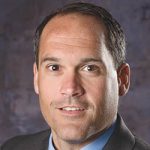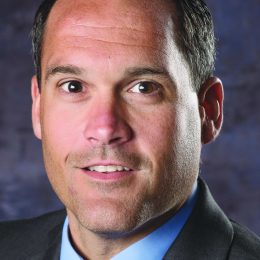
CEO
We are grinding out the last few weeks of summer and heading into fall full of energy (pun intended). I am excited about what we are working on and the strategies that we’ve established to help guide the way.
As I mentioned last month, one of our current strategic initiatives is operational excellence. In order to develop an organizational structure to best serve our mission, we must design and implement long- and short-term plans to provide excellent service, keeping in mind the resources needed to implement such plans. This initiative not only recognizes the need to plan but also the importance of reviewing specific processes, identifying ways to streamline, prioritize and manage future process opportunities. Plans that involve operational excellence foster trust and engagement among employees, while improving member service and satisfaction.
To support operational excellence, we’ve developed a project to review our internal service order and work order processes, and streamline them. Ultimately, this will improve service to the member.
While I recognize there will be circumstances that require deviation from our strategic plan, I am really excited about the focus this approach gives us. As things come up, or as requests are made, we will ask ourselves, “Does this align with our strategic initiatives?” If the matter doesn’t relate to 1) member engagement, 2) employee excellence, 3) strategic combinations, or 4) operational excellence, it will be put on our wait list to be revisted in the future.
In the heat of the moment
Summer electric bills can make you sweat. Sharing some statistics with you may help you understand why your summer bill was higher. While the summer started off very wet, we have experienced long periods of extended heat this summer. July’s average temperature in Decatur County was the highest in the past five years at 76.7 F. There were 368 cooling degree days (CCD) in July 2019 compared to 160 this June and 249 in July 2018.
A cooling degree day (CDD) is a measurement which quantifies the demand for energy needed to cool buildings. It is the number of degrees that a day’s average temperature is above 65 degrees F. Studies show that when the outside temperature reaches that level, people inside no longer want the building heated, but instead begin to consider cooling it.
There are several ways to calculate CDD. One way is to subtract 65 from the average of a day’s high and low temperatures. For example, if the day’s average temperature is 75 degrees, its CDD is 10. If that day’s average is below 65 degrees, the result is set to zero.
If every day in a 30-day month had an average temperature of 75 degrees, the month’s CDD value would be 300 (10 x 30).
Here are some ways to manage your electric bill in those peak months.
• Set your thermostat to 78 F or higher in summer and 68 F or lower in winter.
• Keep doors closed as much as possible (especially attached garage doors).
• Close blinds and curtains during the day.
• Keep vents and ducts clear and clean.
• Use the grill or microwave. (The oven heats up the house and uses more energy.)
• Upgrade to LED lightbulbs.
Survey says
Thank you to those who completed our recent member survey. We are using that information to communicate with you in ways which you prefer. There were several questions and feedback items regarding outage communication and frequency.
If you recall, we utilize an aggressive approach to clearing our rights of way. This improves reliability and service to you. While clearing lines comes at a cost, we know that reliability is important to you. Our tree trimming crews are currently working in the Lake Santee area.
We are also working to upgrade our internal outage communication process to ultimately improve our service and communication with you. Outage information is always available on our outage map located on our website, dcremc.com, and the SmartHub app. If we have a planned project that will create an outage, we will call the impacted members. Please make sure to let us know if your contact information has changed. We also use Facebook to communicate large outages. If you have questions, concerns, or ideas on how we can improve our service to you, please contact the office 812-663-3391.



